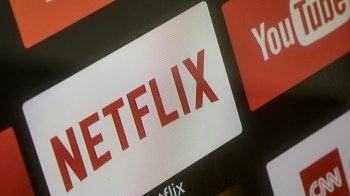Cable companies offer free Wi-Fi — what’s the catch?
Share Now on:
Cable companies offer free Wi-Fi — what’s the catch?
Hey guess what. A bunch of big cable TV companies have teamed up to give you a present: Free Wi-Fi.
If you’re a customer of Comcast, Time Warner, Cox, Cablevision or Bright House, you’ll be able to use Wi-Fi hotspots from any of those companies. Fifty thousand hotspots nationwide showing up under the name Cable Wi-Fi.
Jim Speta, law professor at Northwestern University, says the hotspots will work pretty well.
Jim Speta: It’s as good or better than you would get at home. It’s the sort of signal that people are used to getting at Starbucks or any variety of Wi-Fi places that they run into now.
Moe: And who does this work for? Do I need to be a cable customer? Do I need to have cable and Internet through one of these companies?
Speta: The cable product is offered to their cable/Internet customers or to their broadband subscribers who have cable and Internet service. It’s essentially an ad on to your at-home service.
This means you won’t have to use your phone’s data network as much.
Kevin Werbach teaches Legal Studies and Business Ethics at The University of Pennsylvania’s Wharton School.
Kevin Werbach: What we’ve seen with the growth of smartphones, like the iPhone, is that even though they have cellular data connections, much of the data traffic goes over these unlicensed Wi-Fi access points because they have much more capacity and they’re cheaper.
If anyone offers me something free, especially when it’s a big corporation, I get suspicious. What’s in it for them? And why are cable TV operators offering me internet access which doesn’t involve the cables?
Werbach says it’s about the future.
Werbach: If cable moves to more a wireless footprint, it potentially becomes the only player in the marketplace that is strong in all the areas of video, voice, wireless and data, and that’s a big deal because those are huge markets.
And if your cable company is involved in all those areas, you’re more likely to stay a customer, less likely to use cable’s biggest rival, says Jim Speta.
Speta: The best example of this would be Netflix. So I pay my Netflix subscription. If I’m on the road, and in order to use my Netflix subscription I have to buy hotspot access, and I don’t have another package where that’s available to me, that makes Netflix a little less attractive compared to the video product that the cable companies are offering.
**
Beverly Hills is the most musical city in America. Paul Lamere at the blog Music Machinery looked at 50,000 top musicians and found the hometown of each one. Then he calculated the number of musicians for every 1,000 residents in those cities. Cities with the highest number were deemed most musical.
Beverly Hills had 3.14 big time musicians per 1,000 people. Second place, San Francisco.
The least musical city in America? Fremont, Calif.
There’s a lot happening in the world. Through it all, Marketplace is here for you.
You rely on Marketplace to break down the world’s events and tell you how it affects you in a fact-based, approachable way. We rely on your financial support to keep making that possible.
Your donation today powers the independent journalism that you rely on. For just $5/month, you can help sustain Marketplace so we can keep reporting on the things that matter to you.


















